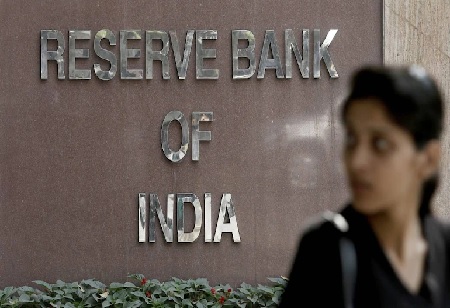By Consultants Review Team
 India's distinct momentum for growth should continue by this year of poor economic expansion worldwide on moderating inflation, the central bank said in its annual report, attributing durability of the country's world-beating expansion credentials to recent structural reforms undertaken by the Centre.
India's distinct momentum for growth should continue by this year of poor economic expansion worldwide on moderating inflation, the central bank said in its annual report, attributing durability of the country's world-beating expansion credentials to recent structural reforms undertaken by the Centre.
Inflation is already moderating and the external account is sound, the Reserve Bank of India (RBI) said, but the El Nino and its adverse impact on rainfall remain potential threats to macroeconomic stability and food prices. Furthermore, moderating global growth, protracted geopolitical tensions and a possible upsurge in financial market volatility, evident in the implosion of many regional US banks, pose downside risks. "It is important, therefore, to sustain structural reforms to improve India's medium-term growth potential," the RBI said.
While the growth outlook appears to be more uncertain for several emerging markets as they face food and energy shortages and unsustainable debt overhangs, the RBI credited India's stellar performance to sound macro fundamentals, fiscal policy thrust on capital expenditure, healthy corporate and financial sector balance sheets, and structural reforms implemented over the recent years by the government.
'Private Capex may Go Up'
"Domestic economic activity does face challenges from an uninspiring global outlook going forward, but resilient domestic macroeconomic and financial conditions, expected dividends from past reforms and new growth opportunities from global geo-economic shifts place India at an advantageous position," the central bank said.
To be sure, India contributed more than 12% to global growth on average during the past five years. The country is expected to have recorded economic expansion of 7% in real GDP in 2022-23 despite several global shocks.
The government's sustained expenditure on building capital assets is expected to be mimicked by the private sector, with several industries already reaching thresholds that should demand addition to capacity.
"The crowding-in effects of sustained increase in government capex over recent years is expected to spur higher private investment in 2023-24," the central bank said.
Inflation is also moderating, creating a stable platform for growth sustainability.
"Risks to inflation have moderated with downward corrections in global commodity and food prices and easing of the pass-through from high input cost pressures of last year," the RBI said.
Crop Prospects Hinge on Rainfall
Still, food prices could turn erratic in case of rainfall deficiency due to the anticipated El Nino event. Summer-sown (kharif) crop prospects would depend on the progress of rainfall. Otherwise, the inflation trajectory is expected to move down over 2023-24, with headline inflation edging down to 5.2% from the average level of 6.7% recorded last year.
The Centre has set the target for grain production at 332 million tonnes in FY24, which is 0.4% above previous year's output.
In the external sector, the current account deficit is likely to remain moderate, backed by robust services exports and the salubrious impact of moderation in commodity prices of imports. India Ratings and Research expects the current account to be in surplus of around $6 billion, which is 0.7% of GDP, in the fourth quarter of FY23 after a gap of six quarters
We use cookies to ensure you get the best experience on our website. Read more...